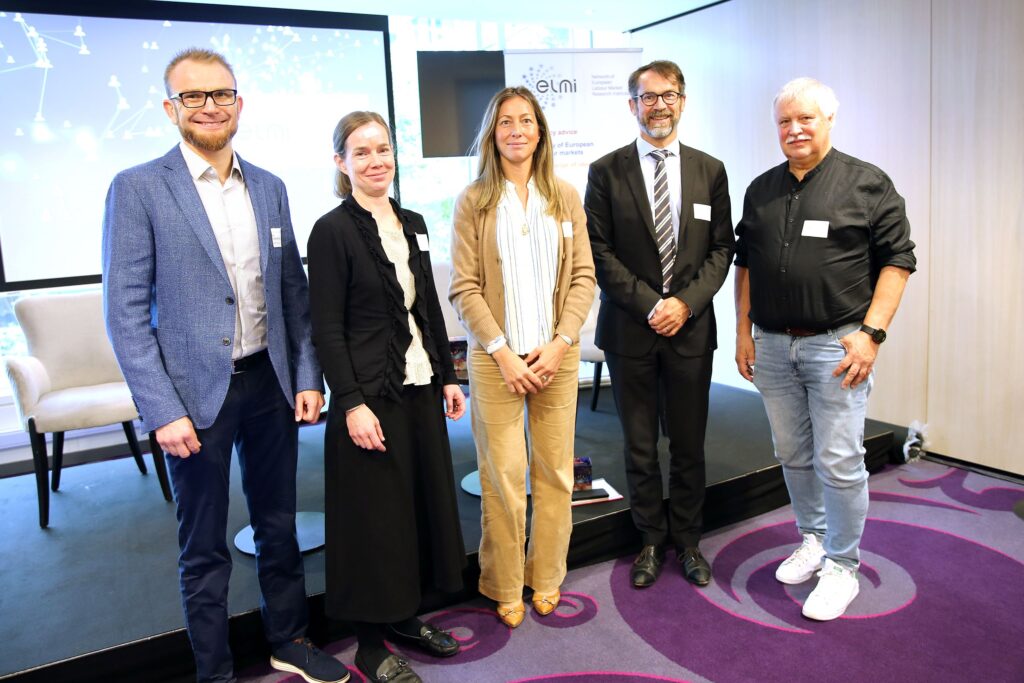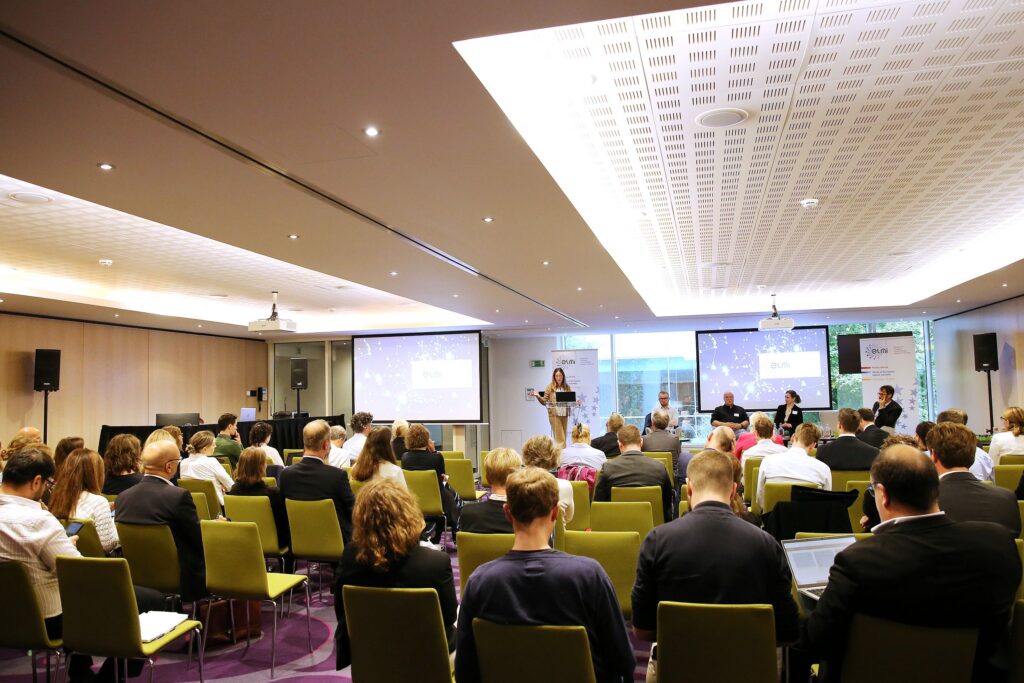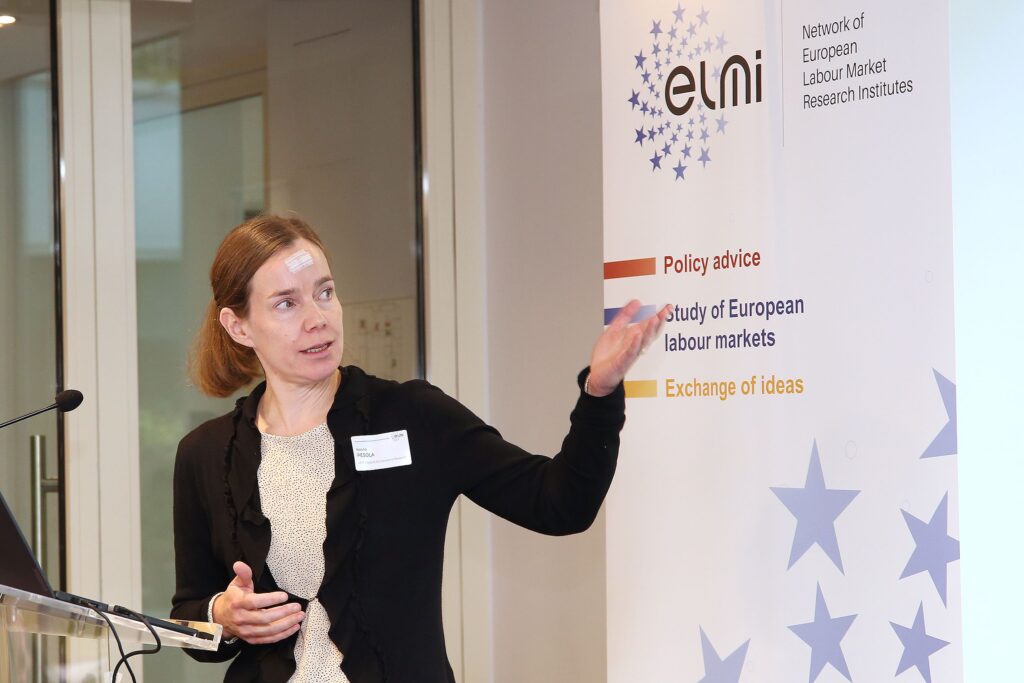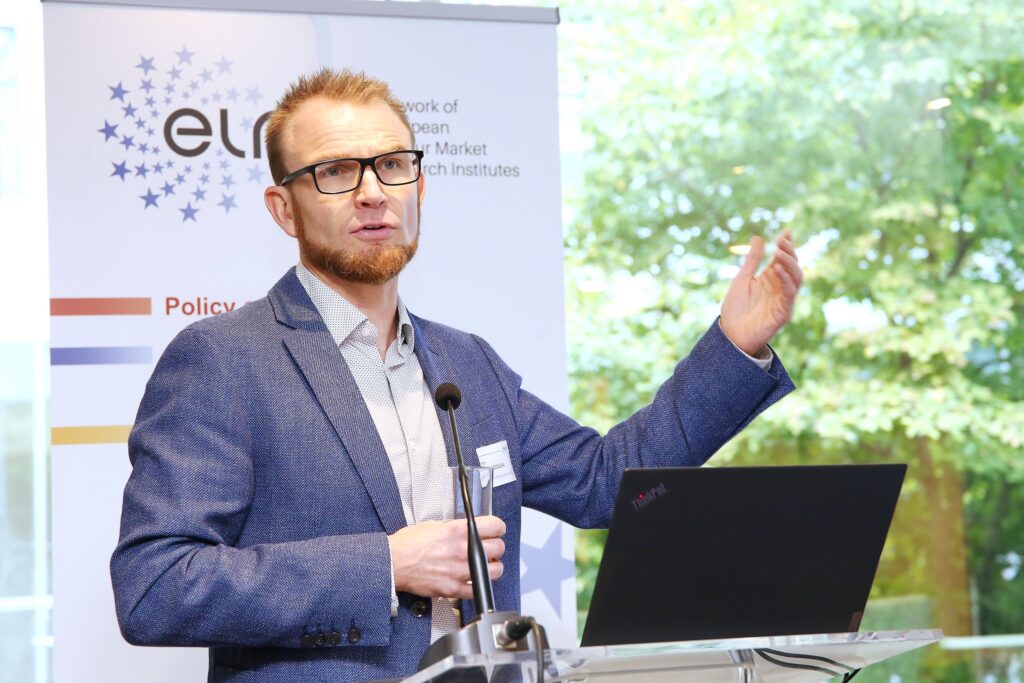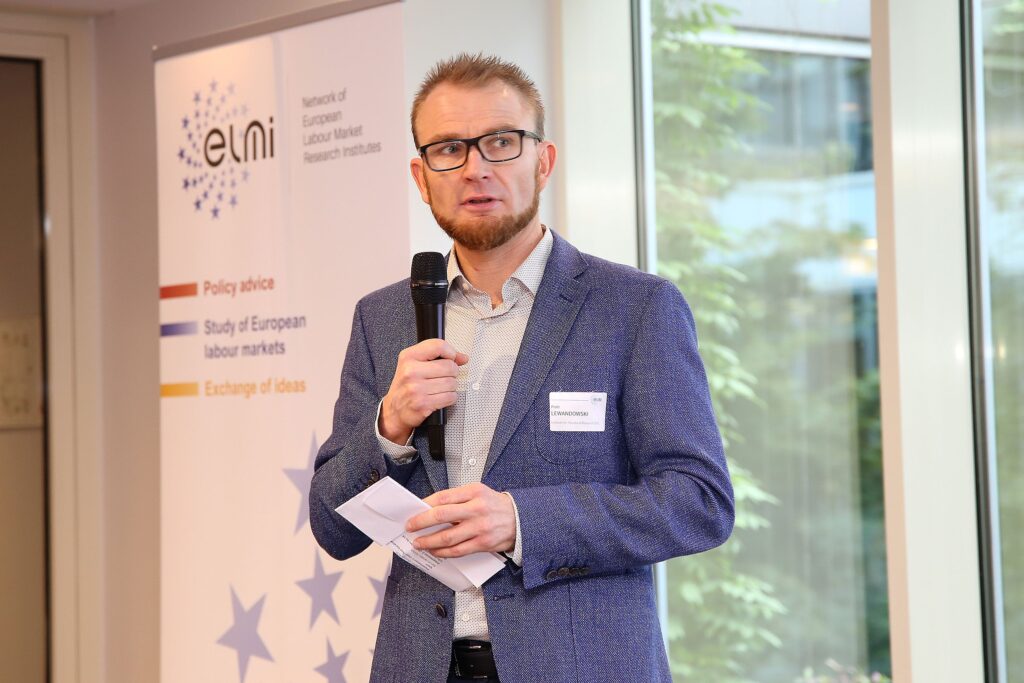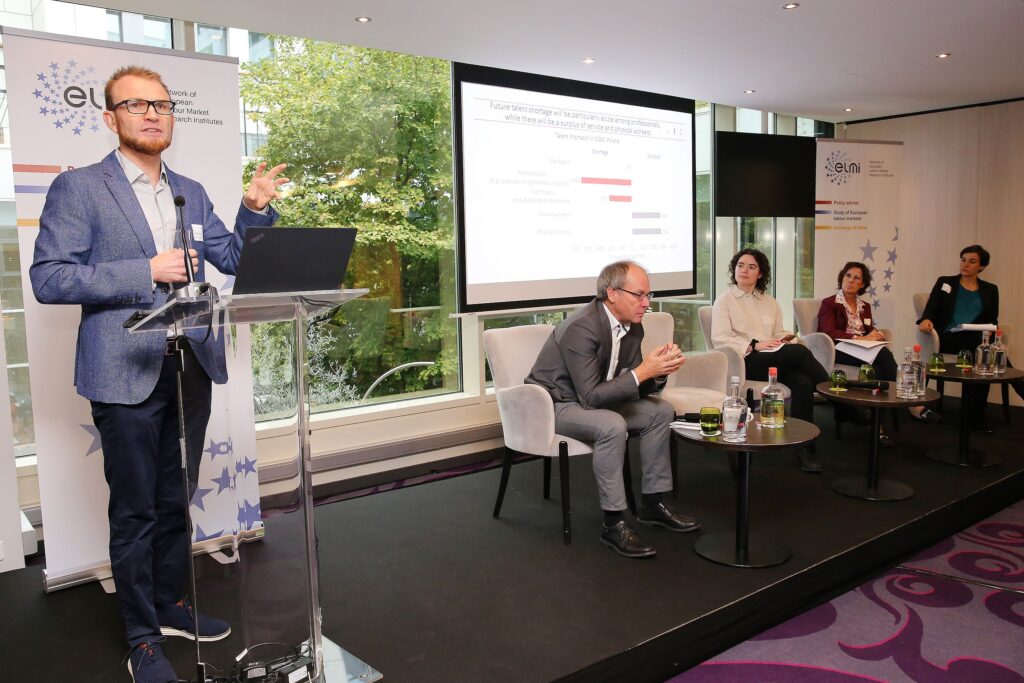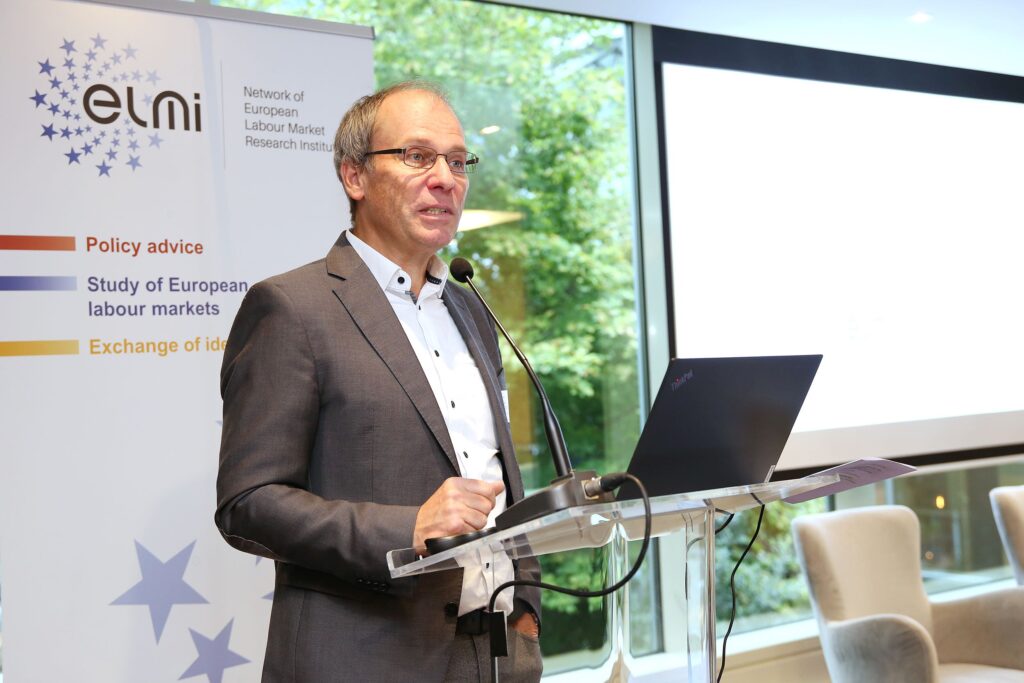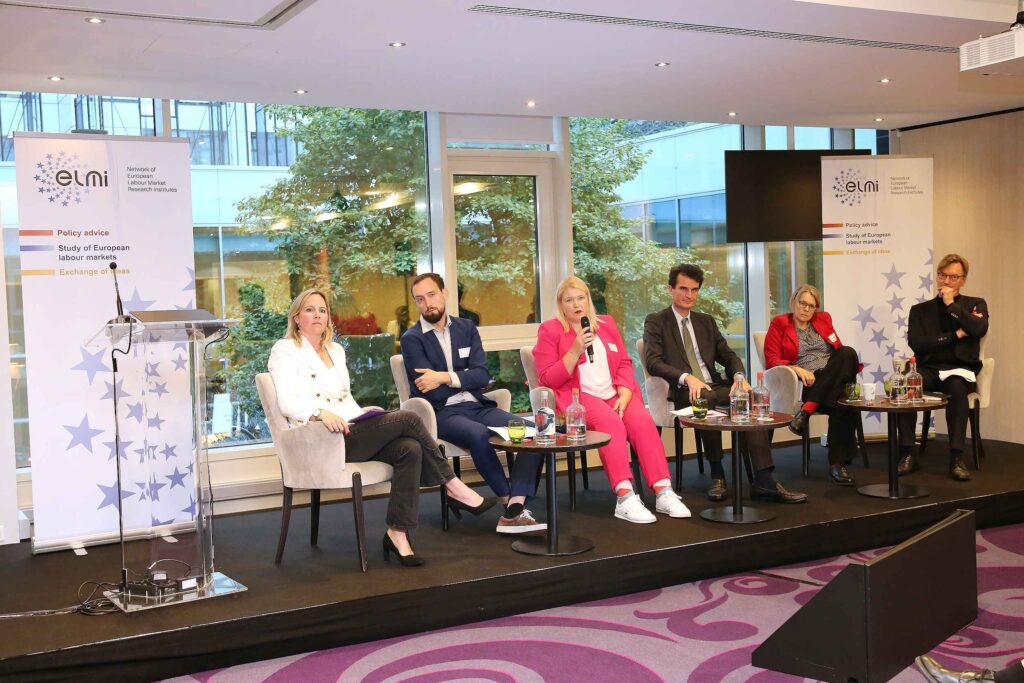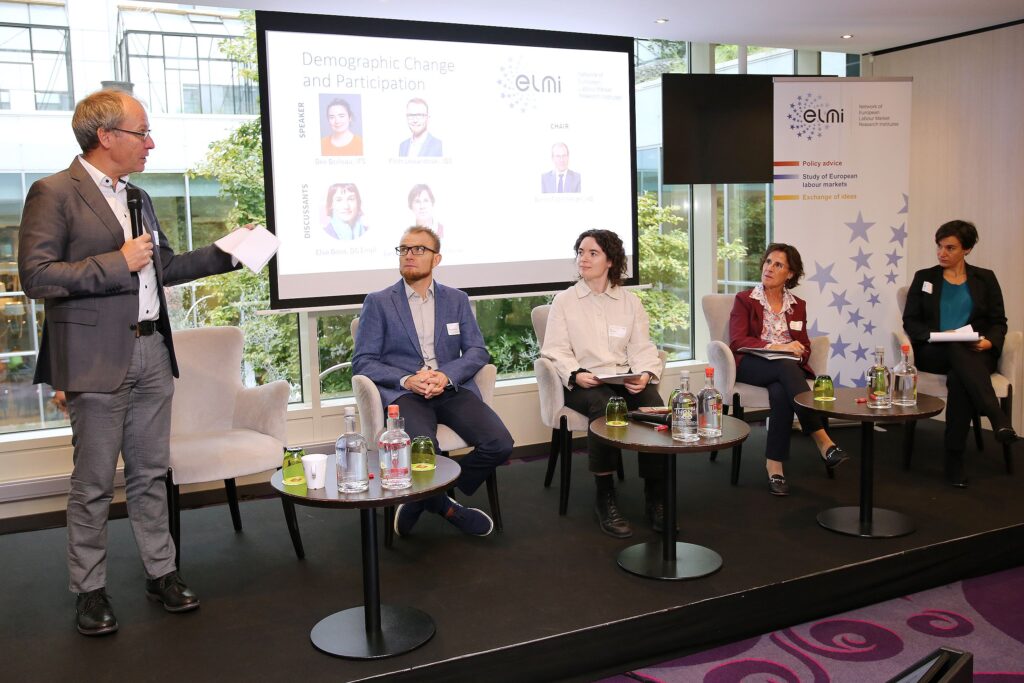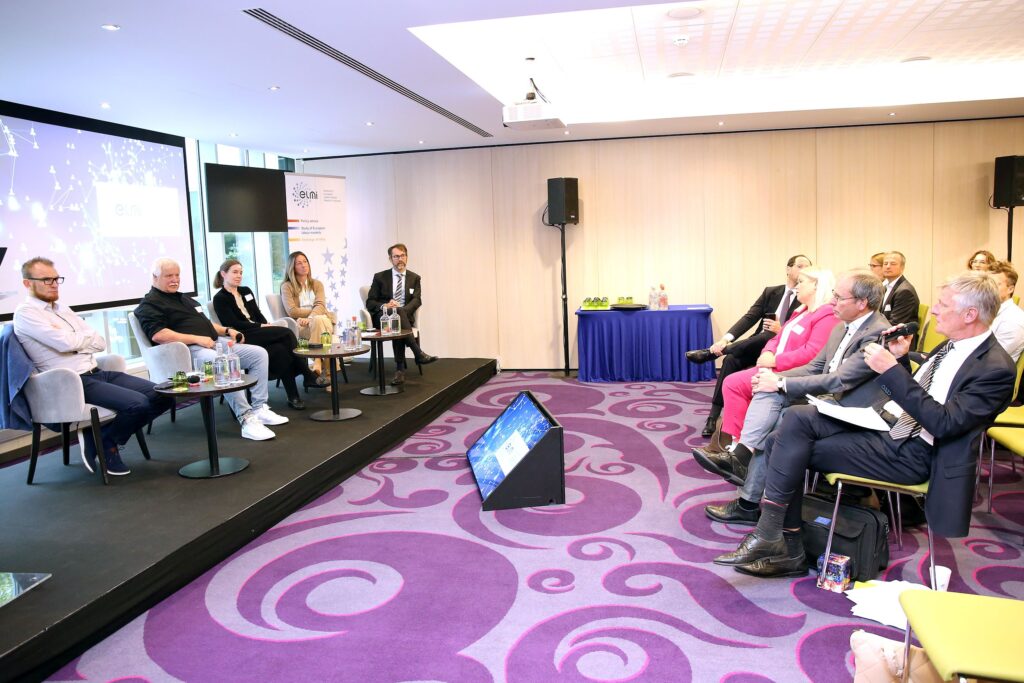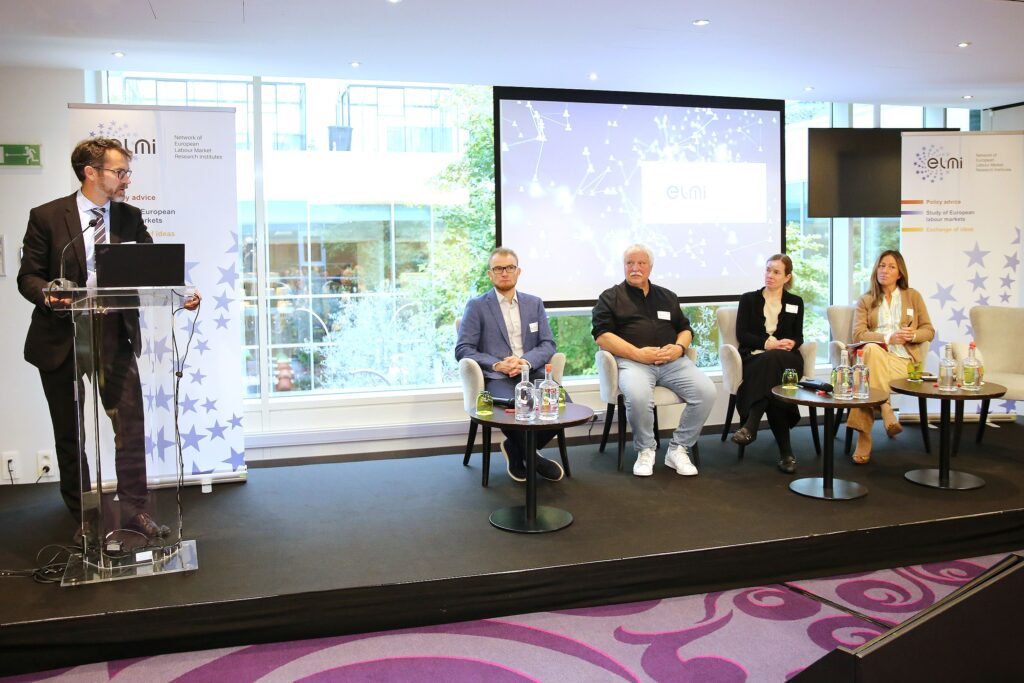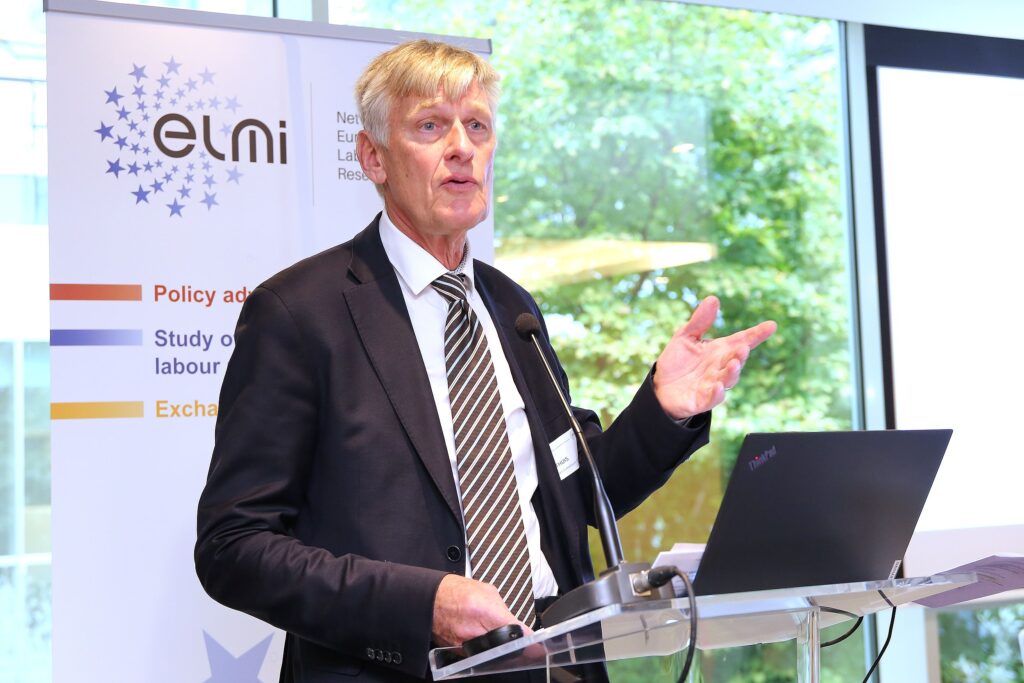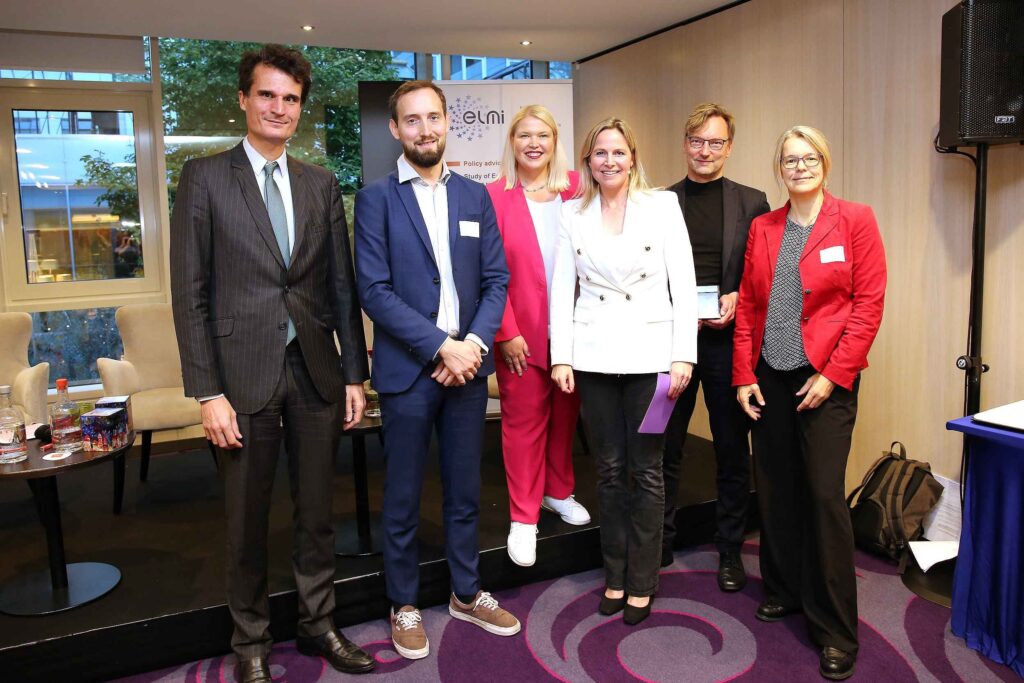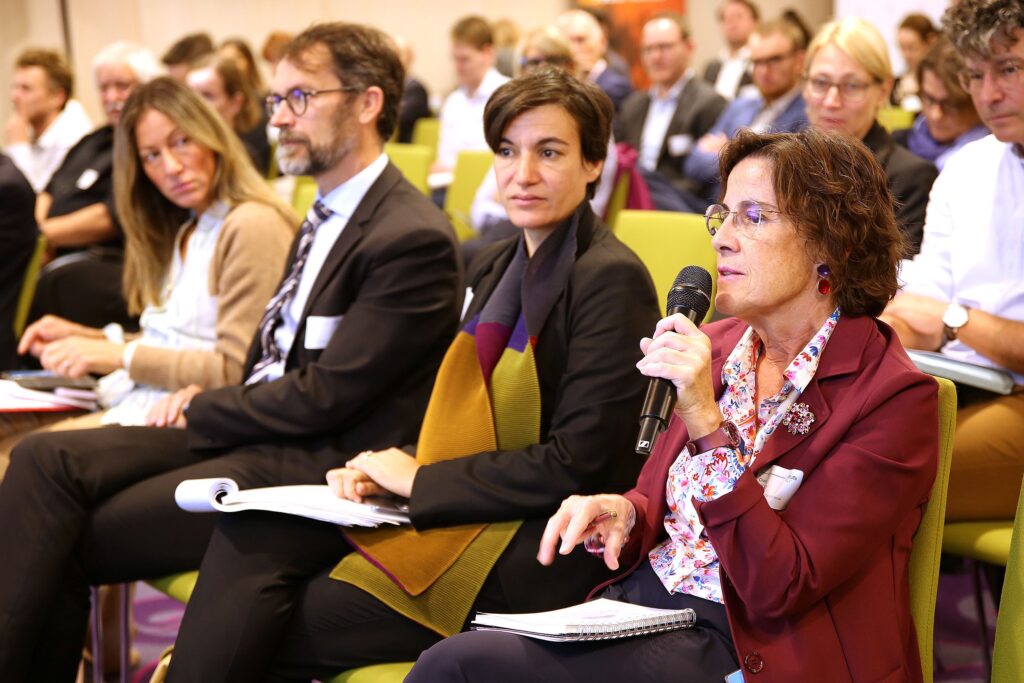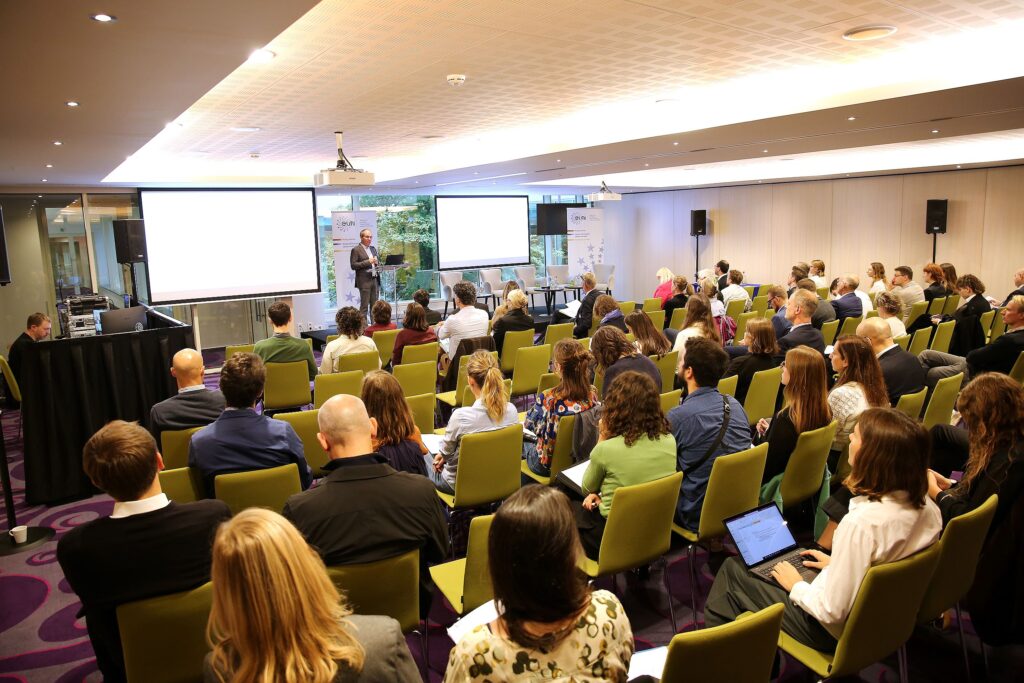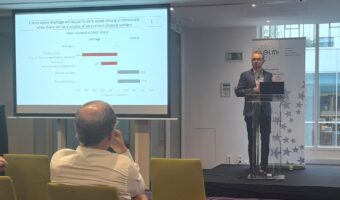The main theme of the ELMI Conference was securing skilled workforces in Europe. Presentations from our European partners covered topics such as vocational education and training (VET) systems, the impact of AI on the labour market, and policies for integrating immigrants into employment. On the first day of the conference, numerous representatives of European institutions also participated, commenting on the presentations by ELMI network researchers and presenting their own perspectives on the discussed issues.
Piotr Lewandowski gave a presentation on the impact of AI technology on labour shortages related to demographic processes. Piotr emphasized that forecasts of declining labour supply are a problem specific to Europe and are not seen on other continents. Using Poland as an example, he showed that AI will have a greater impact on occupations expected to face significant labour shortages in the future. Therefore, the implementation of AI could be more of an opportunity than a threat to the European labour market.
Maciej Albinowski presented the results of two academic papers from his research project “Minimum hours constraints and labour supply of older workers“. The first paper indicates that greater flexibility in working time increases the labour supply of older workers. The second paper, co-written with Joanna Franaszek, shows that the limitations on working time flexibility are often determined by firms’ organizational culture rather than by the characteristics of production processes. The project results suggest that increasing the rights of older workers to reduce their working hours is well-justified.
